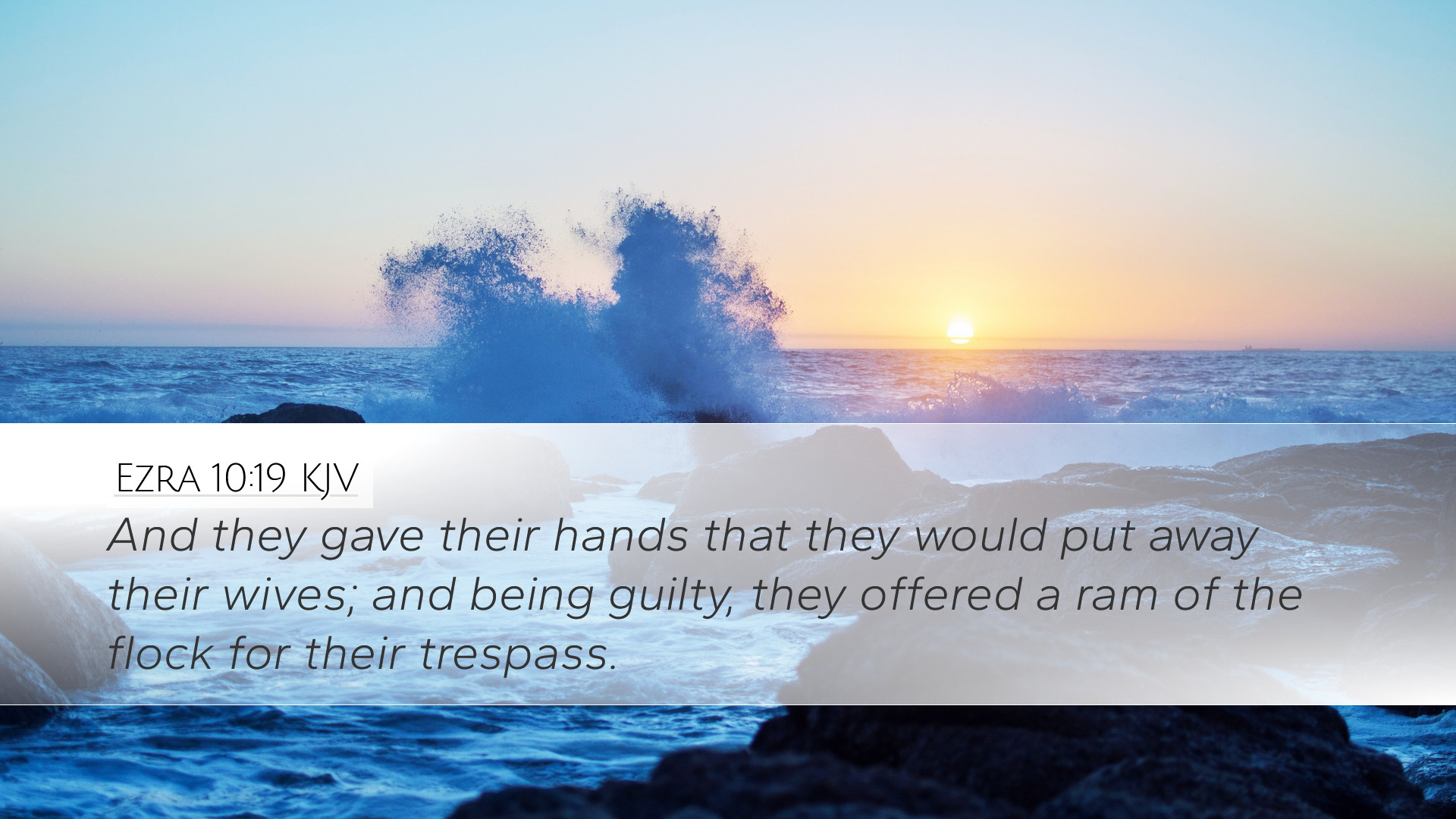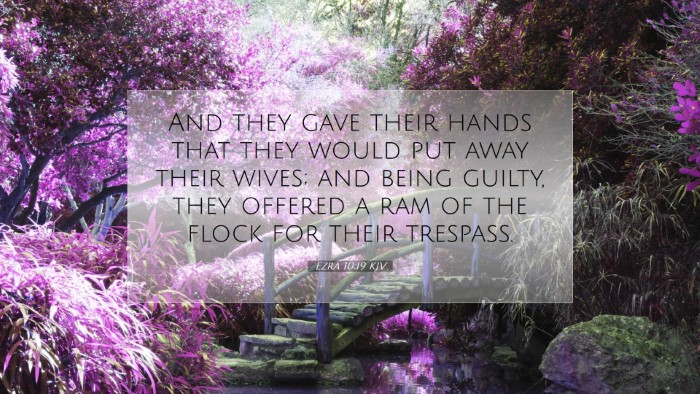Commentary on Ezra 10:19
Introduction
Ezra 10:19 states: “And they gave their hands that they would put away their wives; and being guilty, they offered a ram of the flock for their trespass.” This verse is pivotal in understanding the themes of covenant loyalty, repentance, and restoration in the post-exilic period of Israel's history.
Historical Context
Post-Exilic Restoration
This period follows Israel's return from Babylonian exile, a time characterized by rebuilding and reinstating the worship practices as ordained by the Law. Ezra, the priest and scribe, comes as a leader to guide the people in returning to their covenant obligations.
This revival, however, surfaces significant issues, especially intermarriage with foreign women, which was viewed as a betrayal of their covenant with God (Deuteronomy 7:1-4).
Analysis of the Verse
Actions of the People
According to the verse, the people acknowledged their guilt and took decisive action. This reflects a profound sense of accountability before God, an act of contrition that aligns with the greater theme of repentance. Matthew Henry points out that their willingness to put away their foreign wives symbolizes a drastic step towards restoring their integrity and covenant relationship with God.
Symbolism of the Ram
They offered a ram as a trespass offering, which highlights the seriousness of their sin and the need for atonement. Albert Barnes interprets the ram not just as a mere ritualistic gesture but as a significant act of seeking reconciliation with God. This sacrificial act reinforces the principle that true repentance is accompanied by action.
Theological Implications
Covenant and Community
The act of putting away foreign wives serves as a troubling reminder of the strength and importance of covenant loyalty. Adam Clarke notes that this drastic measure was undertaken in the position of their national identity and covenantal fidelity. The community's integrity was seen as intertwined with their individual actions, reinforcing that one's personal sin has communal repercussions.
Pastoral Reflections
Contemporary Application
For pastors and theologians today, this passage poses a critical reflection on the nature of sin within the community of faith. Just as Ezra guided the people in confronting uncomfortable realities, church leaders today are called to challenge congregants to examine their own lives honestly against the teachings of scripture. It raises the question of how far one is willing to go in order to restore and strengthen the relationship with God.
Conclusion
Call to Repentance
Ezra 10:19 serves not only as a historical account but also as a timeless reminder of the importance of allegiance to God in a community. The people's response to their guilt underscores that genuine repentance involves both acknowledgment of sin and tangible actions toward restoration.
In conclusion, this verse invites all readers—pastors, students, and scholars—to engage with the weight of covenant faithfulness, the significance of communal integrity, and the necessity of both repentance and restoration in the life of believers. As we navigate the complexities of modern faith and practice, let us aspire toward the same earnestness exhibited by the leaders and community members in Ezra's day.


